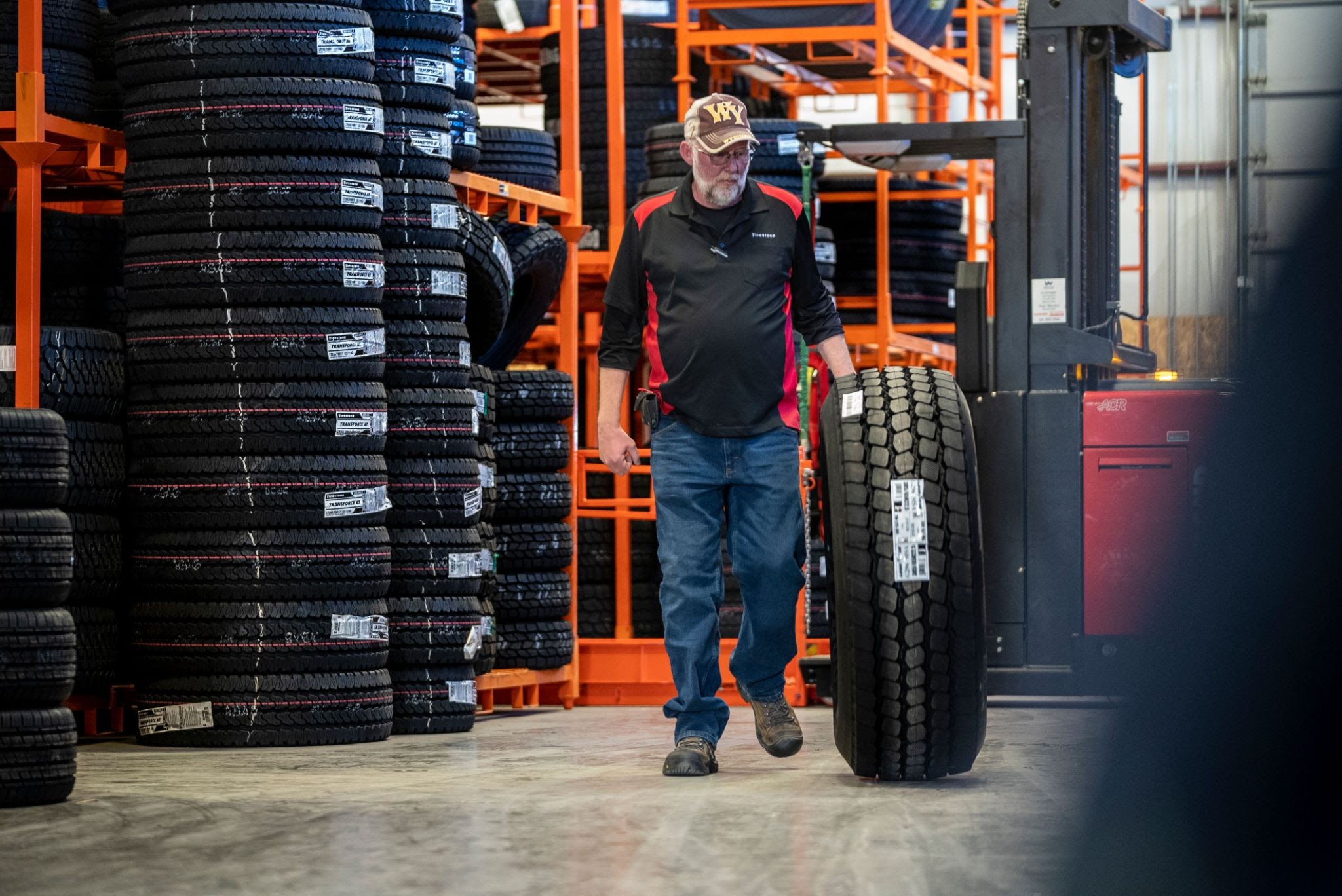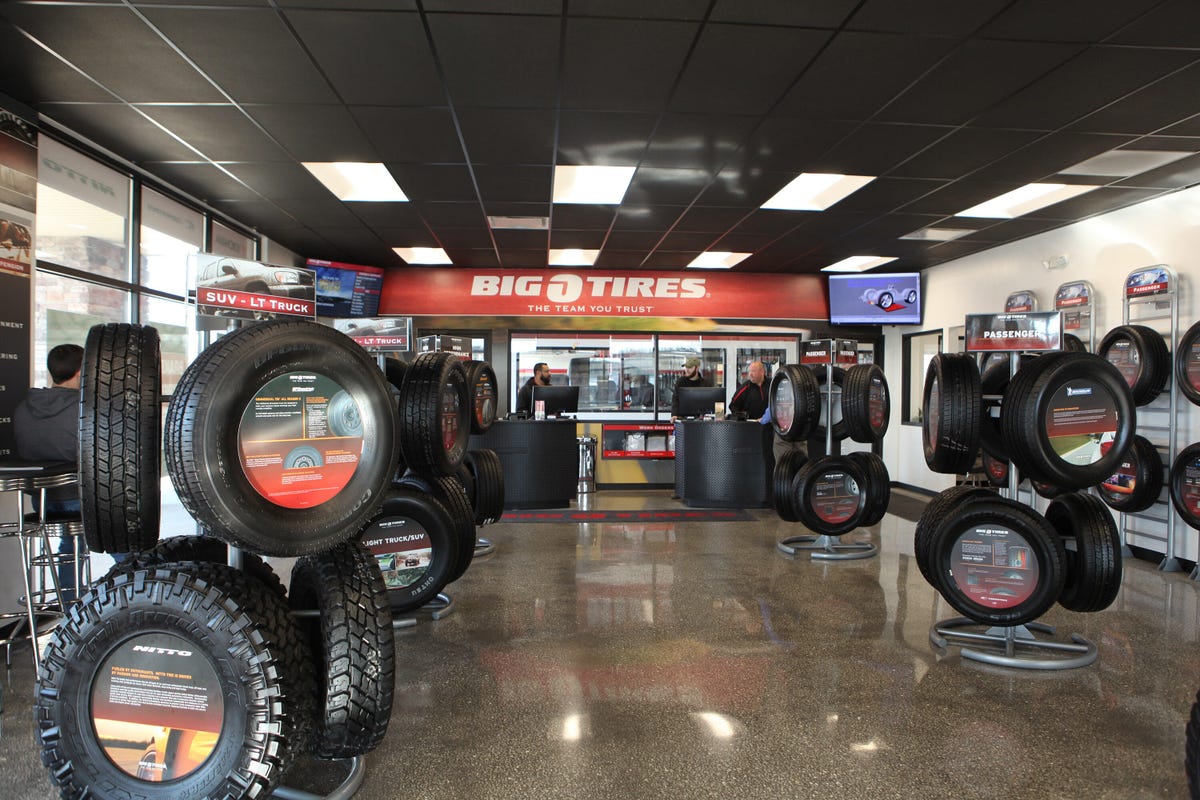Discover Top Tire Tracks Morris IL: Your Ultimate Destination for High Quality Tire Solutions
Discover Top Tire Tracks Morris IL: Your Ultimate Destination for High Quality Tire Solutions
Blog Article
The Ecological Benefits of Proper Tire Upkeep
Preserving proper tire care is frequently overlooked, yet its effect on the setting is profound. Proper tire upkeep not only extends the life-span of tires however also reduces landfill waste and contributes to boosted air quality.
Lowered Gas Consumption
Improving tire upkeep practices can lead to a considerable decrease in gas intake for vehicles. According to the United State Department of Power, underinflated tires can lower gas mileage by 0.2% for every 1 psi decline in pressure in all 4 tires.
Along with tire stress, normal tire rotations and placements likewise play a crucial role in fuel efficiency. Unevenly used tires can raise fuel usage as the engine functions harder to preserve speed and grip. By preserving appropriate alignment and revolving tires at advised periods, motorists can make certain also use and extend the life of their tires, inevitably saving fuel and minimizing their carbon impact.
Extended Tire Lifespan
Extending the life-span of tires is a key element of efficient car upkeep practices that can yield price savings and environmental advantages over time. By properly keeping tires, drivers can substantially extend their use, lowering the frequency at which brand-new tires require to be made and old ones thrown away. This not just saves valuable sources but additionally lessens the power and emissions connected with tire manufacturing and disposal processes.
On a regular basis examining tire stress, turning tires, and guaranteeing proper placement are crucial steps in extending tire life expectancy. Sufficient tread depth is vital for optimum grip and safety, however it additionally plays a role in exactly how long tires can be made use of prior to requiring replacement. Additionally, staying clear of hostile driving behaviors that increase tire wear, such as harsh braking and sharp turns, can additionally enhance tire sturdiness.
Eventually, increasing the durability of tires with proactive upkeep not only benefits the setting by decreasing waste and preserving resources however additionally brings about cost savings for automobile owners by postponing the requirement for new tire acquisitions.
Reduced Emissions Outcome
Efficient tire maintenance techniques add to a reduction in exhausts result, straightening with environmental sustainability goals in the automobile sector. Properly filled with air tires, on a regular basis rotated and straightened, can boost gas effectiveness, hence lowering the general co2 emissions from vehicles. When tires are underinflated, the engine must function harder to propel the car, resulting in increased gas usage and higher discharges. By preserving ideal tire stress degrees, motorists can aid minimize these unfavorable environmental impacts.
Moreover, properly maintained tires likewise boost grip and lower rolling resistance, better enhancing fuel efficiency. This, in turn, minimizes the amount of exhaust gases launched into the atmosphere. In addition, guaranteeing tires are properly inflated and aligned can read what he said expand the life expectancy of the tires, minimizing the frequency of tire substitutes and the linked environmental costs of tire production and disposal.

Reduced Landfill Waste
Provided the positive effect of proper tire maintenance on decreasing discharges output, one more significant environmental benefit is the capacity for lowered garbage dump waste. By ensuring that tires are correctly pumped up, aligned, well balanced, and turned regularly, their life expectancy can be significantly extended.

Improved Air Top Quality
Enhancing air high quality through proper tire upkeep techniques is an important facet of sustainable ecological stewardship. When tires are underinflated, they produce much more rolling resistance, resulting in boosted gas intake and higher discharges of hazardous pollutants such as carbon monoxide and nitrogen oxides. Appropriately inflated tires not just enhance fuel efficiency however additionally reduce the quantity of pollutants released right into the air.
In addition, properly maintained tires with appropriate walk depth and placement add to much safer motoring problems, reducing the chance of mishaps that can lead to the launch of added contaminants into the environment. By prolonging the life expectancy of tires through routine upkeep and rotation, fewer tires are thrown out too soon, decreasing the ecological effect of tire disposal and manufacturing procedures.
Conclusion
To conclude, proper tire upkeep supplies numerous environmental advantages. By reducing gas intake, extending tire life-span, decreasing discharges output, decreasing land fill waste, and improving air top quality, people can add to a much healthier world. These efforts not only profit the setting yet likewise aid to conserve resources and lower overall ecological influence. It is crucial for people to prioritize tire upkeep as a simple yet efficient means to safeguard the environment for future generations.
Correct tire maintenance not only prolongs the lifespan of tires yet also reduces garbage dump waste and contributes to improved air quality - tire tracks morris il. By preserving proper placement from this source and turning tires at advised intervals, drivers can make sure even put on and extend the life of their tires, inevitably saving gas and lowering their carbon footprint
By effectively keeping tires, vehicle drivers can significantly lengthen their functionality, lowering the frequency at which brand-new tires require to be produced and old ones disposed of.Consistently examining tire pressure, turning tires, and making sure proper positioning are crucial actions in extending tire life expectancy. Furthermore, making sure tires are correctly blown up and aligned can expand the lifespan of the tires, reducing the frequency of tire substitutes and the associated environmental prices of tire production and disposal.
Report this page